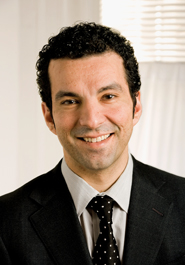Though government regulators have squashed Nasdaq OMX’s bid to take over NYSE Euronext, bourses throughout the world remain poised to continue a wave of consolidation, experts say.

The proposed merger between Nasdaq and NYSE was guaranteed to raise regulators’ eyebrows, as the combined company would have had a near monopoly over U.S. listings. Still, exchanges have made it clear they will continue to seek opportunities for mergers, according to Vlad Khandros, corporate strategy executive at Liquidnet
"Just because one deal doesn’t occur doesn’t mean that the folks involved are done," Khandros said. "They still want to find a dance partner."
Khandros said the industry model has evolved dramatically since exchanges went from being protected monopolies to being competitive for-profit companies. In spite of the occasional roadblock thrown up by regulators, he foresees the future exchange landscape being dominated by a small number of international conglomerates.
For the U.S. Department of Justice, the Nasdaq-NYSE deal went a bridge too far. Christine Varney, assistant attorney general for the department’s antitrust division, asserted the acquisition would have removed incentives for competitive pricing, quality service and innovation.
Nasdaq head Bob Greifeld said the exchange withdrew its offer when it became clear the company wouldn’t be able to secure regulatory approval even with a proposed sale of NYSE’s self-regulatory arm.
However, few people thought that merger would occur anyway, according to Tim Mahoney, chief executive officer of BIDS Trading, which is owned by a consortium that includes NYSE Euronext. Now he feels all eyes are on Deutsche Boerse’s bid for the New York, a deal with the backing of NYSE’s management.
"If ultimately that transaction occurs, then you’ll see more like it, because that’s how the exchange story is going to play out," Mahoney said. "By diversifying your revenue stream across different products and multiple countries, you’ve created the standard."
Though diversification makes economic sense, exchanges can hit a snag when their cross-border deals ruffle national feathers. That’s what happened in April, when Australian Treasurer Wayne Swan officially prohibited a merger between the Australian Securities Exchange and the Singapore Stock Exchange, citing national interest.
Mahoney said he’s watching what happens in Canada now that the London Stock Exchange’s bid for TMX Group–operator of the Toronto Stock Exchange–has been met with a sweeter offer from a consortium of Canadian banks known as the Maple Group, which wants to keep the exchange locally owned.
If LSE fails to acquire the Toronto, there could be a merger between London and Nasdaq, many speculate.
"There’s some pressure on the Nasdaq to do a deal, and there are no intra-country deals to be done," Mahoney said. "They’re going to have to try an acquisition globally."
London would be an attractive partner for Nasdaq, as would be Singapore, which has a friendly business climate, Mahoney said.

Justin Schack, managing director for market structure analysis at Rosenblatt Securities, said one option Nasdaq has would be to acquire the Chicago Board Options Exchange.
"What Nasdaq and some of its peers are trying to do is move higher up the value chain into products that are faster growing, not as competitive and higher margin," Schack said. "CBOE, with its proprietary index-options business, would help it move in that direction."
Schack said another option would be for Nasdaq to go after a smaller exchange group, such as BATS or Direct Edge.
"They’ve been very good at acquiring companies, squeezing the costs out of them, integrating them very efficiently and creating value for their shareholders," Schack said. "Because they’re so good at integrating deals and creating value that way, it makes sense for them to do more."
Since the New York Stock Exchange went public in 2006, consolidation among exchanges has proceeded at a rapid pace.
Soon after NYSE became a public company by combining with Archipelago Holdings, it merged with Euronext, and the following year Nasdaq acquired OMX and the Philadelphia Stock Exchange. NYSE took over the American Stock Exchange in 2008.
Further consolidation, such as a NYSE merger with Deutsche Boerse, would be bad news for retail investors, according to Chris Nagy, managing director of routing strategy at TD Ameritrade. He said eliminating competition is never good.
"NYSE’s come out and said, this deal will result in lower costs," Nagy said. "Maybe for the first year, but for the next five years, we’re going to be paying for it dearly."
Still, Nagy admitted the climate is right for consolidation, given that both margins and volumes have been squeezed.
"We’ve seen a big hit to listings," Nagy said. "Trading is down, which drives market data being down. As those revenue streams are getting crushed, there is this urge to merge to maintain those revenues for shareholders."
Whether regulators like it or not, exchanges will continue to push the envelope on consolidation, Nagy said. That means Nasdaq’s nixed bid for NYSE is not so much a failure as it is a portent of things to come.



